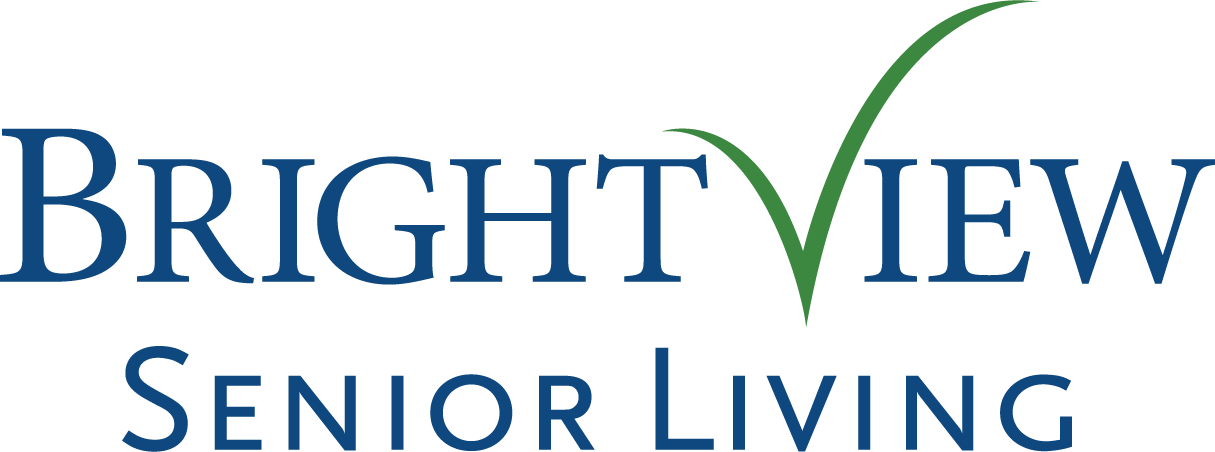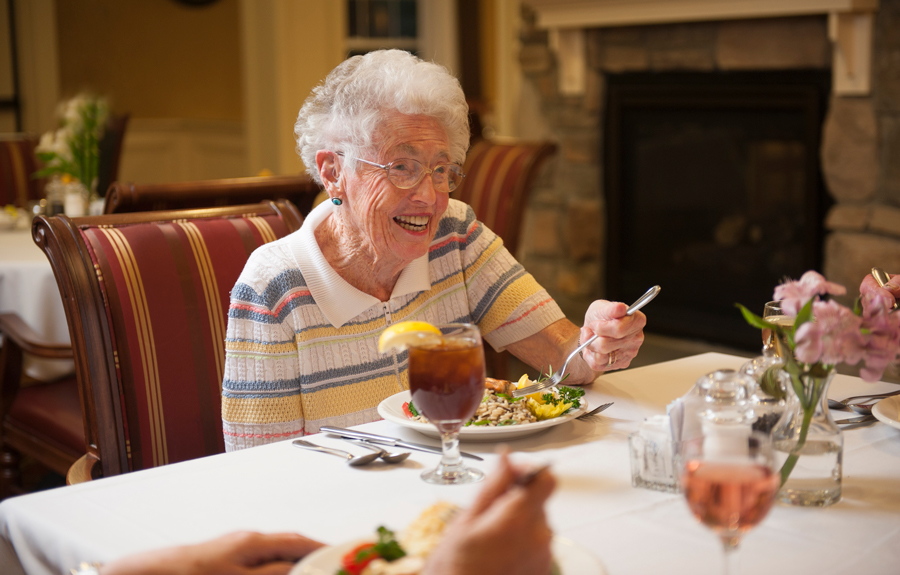There’s more to health and wellness than simply the absence of illness or disease. At Brightview Senior Living, we put a focus on healthy food offerings while still giving residents independence and choice in their selections.
The Food Pyramid, which shows the components of a balanced daily diet, should be used as a guide.It is not a rigid diet plan, but a plan that emphasizes variety, proportions and moderation. The elderly are encouraged to eat the minimum number of recommended servings in each of the five food groups on a daily basis. The five food groups consist of:
- Breads/Cereal/Rice/Pasta
- Vegetables
- Fruits
- Milk/Cheese/Yogurt
- Meat/Poultry/Fish/Dried Beans/Eggs/Nuts
For elderly women, osteoporosis is a concern. Women will want to consume doctor recommended amounts of calcium and vitamin D. Those who don’t care for milk can try milk based soups, puddings, custards, ice cream or juice fortified with calcium.
As people age, their bodies go through physical changes which effect our ability to enjoy foods. There is a decrease in the number of taste buds, decrease in the production of saliva, a decrease in the sense of thirst and a decrease in the sense of smell. The sense of taste and smell are linked. People often find that their senses of taste and smell become dull as they age. Bitter and sweet are the two sensory sensations which remain. Medications can also effect the taste buds. Some medications leave a metallic taste and others leave a bitter taste in the mouth. Sometimes older people will overload their food with salt to compensate or they may totally loose interest in food.Therefore, seniors should try new foods! As time passes, a food previously disliked may become a favorite. Try using herbs, spices, lemons, limes and natural seasonings to bring out the flavors of foods.
Adequate fluids are essential to prevent dehydration and irregularity. A minimum of eight glasses of water should be consumed daily. Instead of high sugar caffeinated beverages, try fruit juices, herbal teas, frozen pops, sorbet, sherbets, gelatins and flavored ices.
Food intake should be balanced with physical activity. Appropriate exercise improves overall health at any age. Regular exercise improves the functioning of the heart and lungs, decreases blood pressure and contributes to a feeling of well being. Suggested exercises for the elderly include walking, swimming, Tai chi, bicycling, gardening and supervised weight training.Personal physicians should be consulted before beginning any exercise program and exercises are to be performed under supervision.
Exercise improves agility, endurance, strength, flexibility and balance in the elderly and reduces the likelihood of falling.
Moderate exercise places weight on your bones and helps to maintain bone density. Weight loss after the age of 50 raises the risk of hip fractures, a leading cause of injury among the elderly. Hip fractures are particularly pronounced among women who are already thin and at a greater risk.
Healthy eating and regular exercise are investments in long term quality of life.

